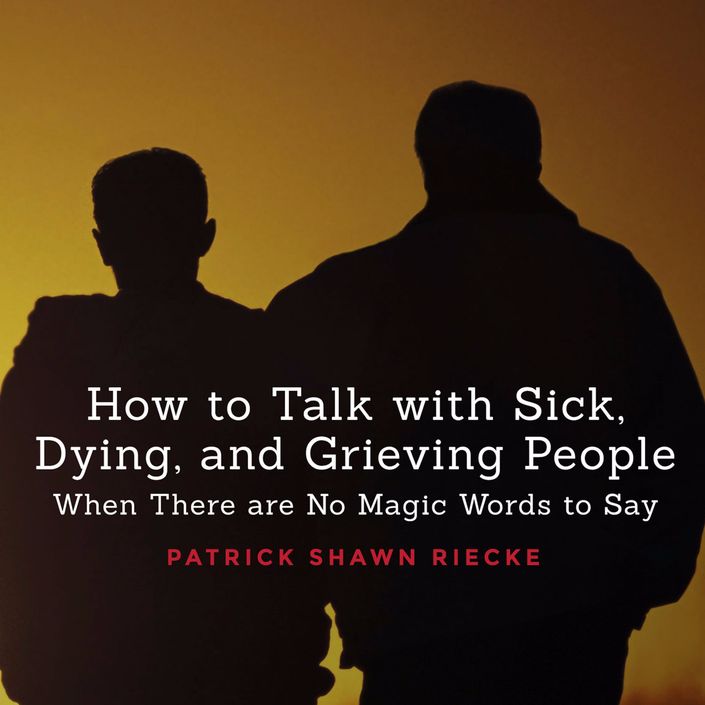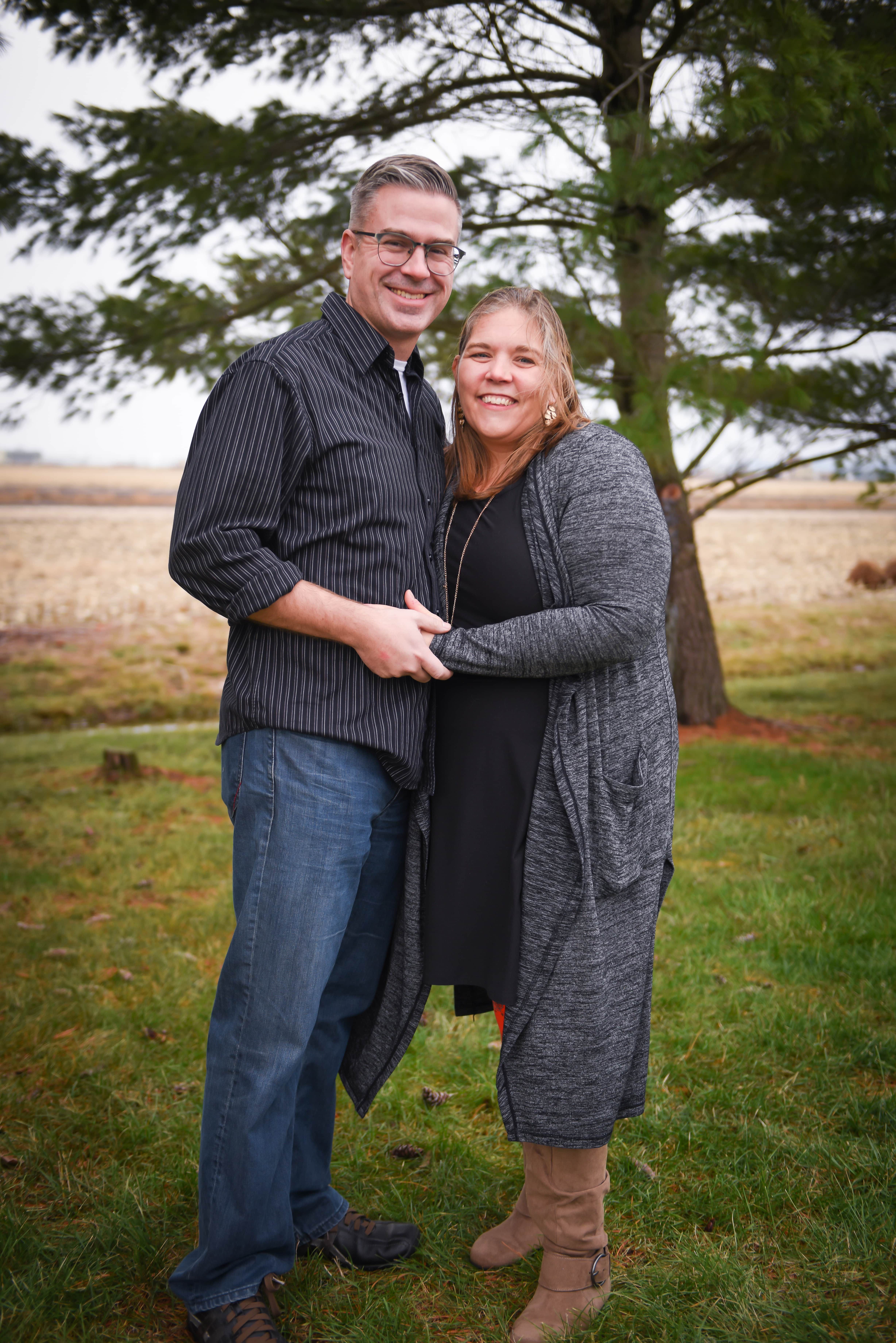
How to Talk with Sick, Dying, and Grieving People
When there are no Magic Words
“We all want to hug you. Will that be ok?”
The young man whose mom had tragically died that day quietly nodded. Riecke wrapped his arms around him. “I’m so sorry. I wish there were some magic words I could say to make it all better.”
In life’s most difficult moments, we all want to help or say the right thing.
But what do you say?
It can feel like all the rules have suddenly changed.
Enroll in this course today so you will know how to talk with Sick, Dying, and Grieving People, when there are no magic words to say.
*| 18 short videos with TONS of extra articles, links, and practical resources in the notes! |*
Rev. Patrick Riecke, M.A., is the Director of Chaplains and Chairperson of the Ethics Committee for Parkview Health. For over 20 years, Riecke has curated the best methods for helping people and families in exactly these moments.
In this course you will learn:
- 7 things to ALWAYS do when you visit a hospital, 4 things to SOMETIMES do, and 7 to NEVER do
- Compelling stories of ultimate suffering and overwhelming significance
- Traps to avoid so you can be successful at making a difference
- Case studies of hurting people and how to help
- Three Phases of Spiritual Growth
- Practical tips for leaders who care about people in grief, trauma or crisis
Are you ready to really help? Do you want to know what to say (or not say) to people who are sick, dying or grieving? Enroll in this course today to start making a difference.
Your Instructor

Rev. Patrick Riecke is the Director of Chaplaincy and Chairperson for the Ethics Committee at Parkview Health. He leads a team of chaplains who respond to 1400 deaths per year. Patrick is the author of How to Talk with Sick, Dying and Grieving People: When there are No Magic Words to Say, and 101 Ways to Find Meaning in Suffering. His new book, co-authored with his wife, Kristen, is called No Matter How Small: Understanding Miscarriage and Stillbirth.
Patrick speaks about end of life, finding meaning, and infant loss. He was born and raised in Fort Wayne, IN. He’s been married to Kristen since the 1900s and they have four opinionated children. When he was five years old, he dreamed of being either a Truck Driver or a Catholic Priest. Neither dream has come true yet.
Course Curriculum
-
PreviewSeries Introduction: How to even begin thinking about Sick, Dying, and Grieving People (5:51)
-
StartHospital Visit: ALWAYS do these seven things (3:04)
-
StartHospital Visits: Sometimes do these four things (2:59)
-
StartHospital Visit Tips: NEVER do these seven things (4:54)
-
StartPhase One: Where our journey begins (1:53)
-
StartPhase Two: When problems arise (1:25)
-
StartPhase Three: The Fate that Cannot Be Changed (1:43)
-
StartPhase Three Continued (2:47)
-
StartFuneral Home-How do I pick? (3:21)
-
StartAdvance Care Planning-Make sure YOUR wishes are honored (2:26)
-
StartAdvance Care Planning CONTINUED (3:14)
-
StartAssisted Suicide Euthanasia (2:23)
-
StartNazi Holocaust survivor talks on Meaning in Life (2:38)
-
StartWhy clichés DON’T work (1:52)
-
StartThree Methods to Finding Meaning in YOUR life (2:31)
-
StartHow Margaret found meaning in Phase Three (4:41)
-
StartHow to talk with CHILDREN about death (3:03)
-
StartMaking a PLAN to help Sick, Dying, and Grieving People (4:21)
Frequently Asked Questions
For more free content, videos, and advice on helping people who are sick, dying, or grieving, sign up for Patrick Riecke's newsletter at www.PatrickRiecke.com. When you sign up, you will receive access to the five helpsheets in the back of this book, and several video trainings where Riecke explains how to talk with the sick, dying, and grieving.

